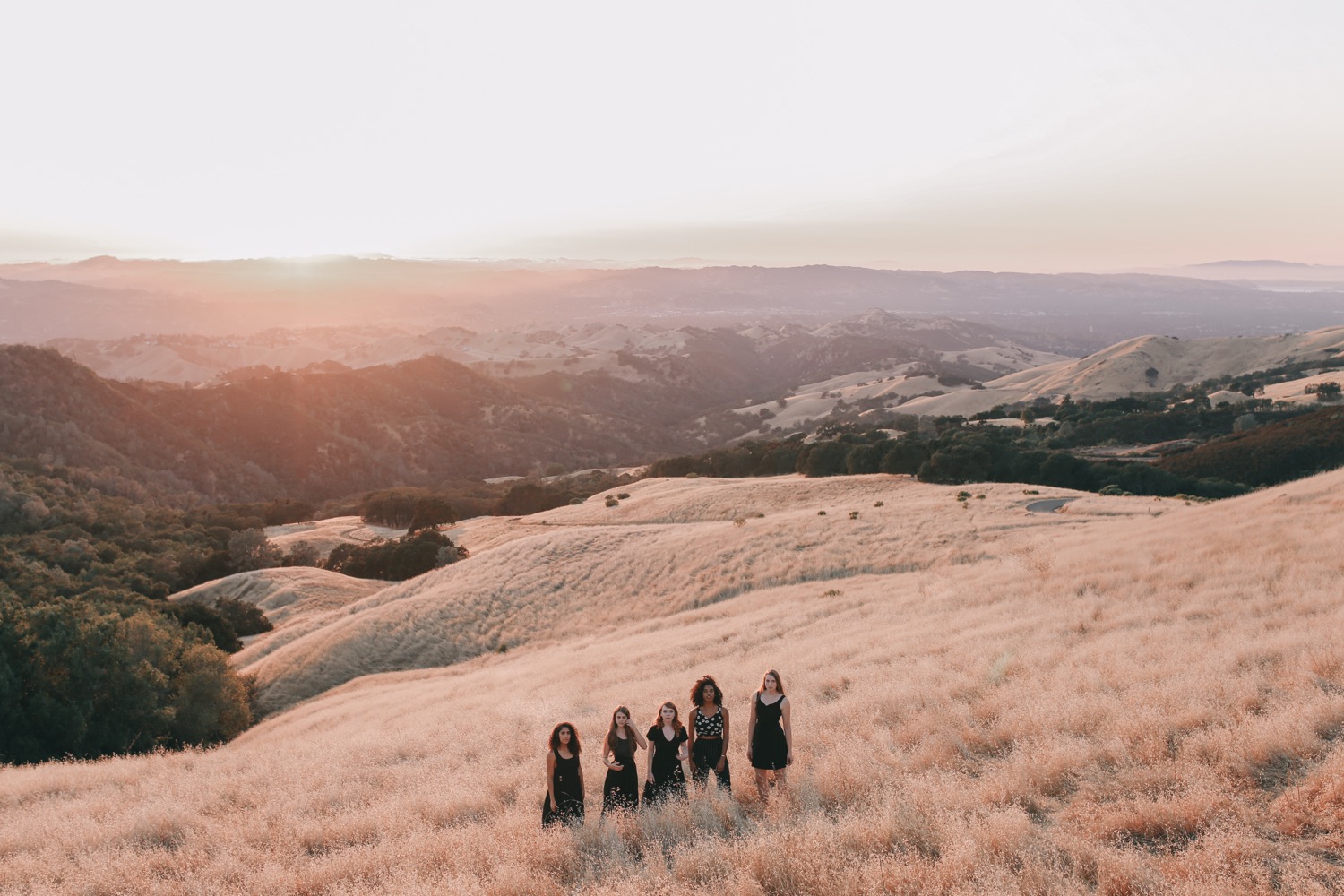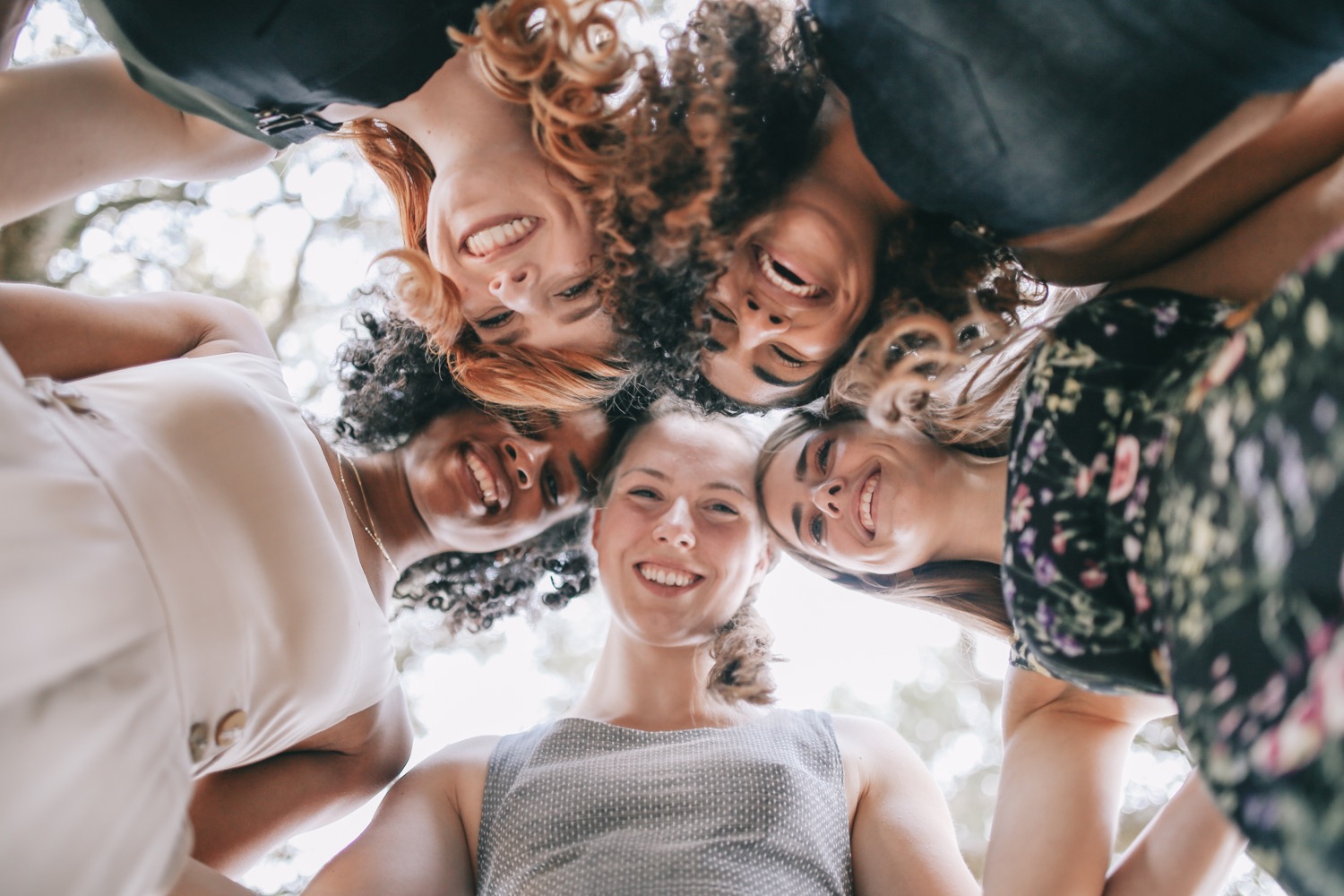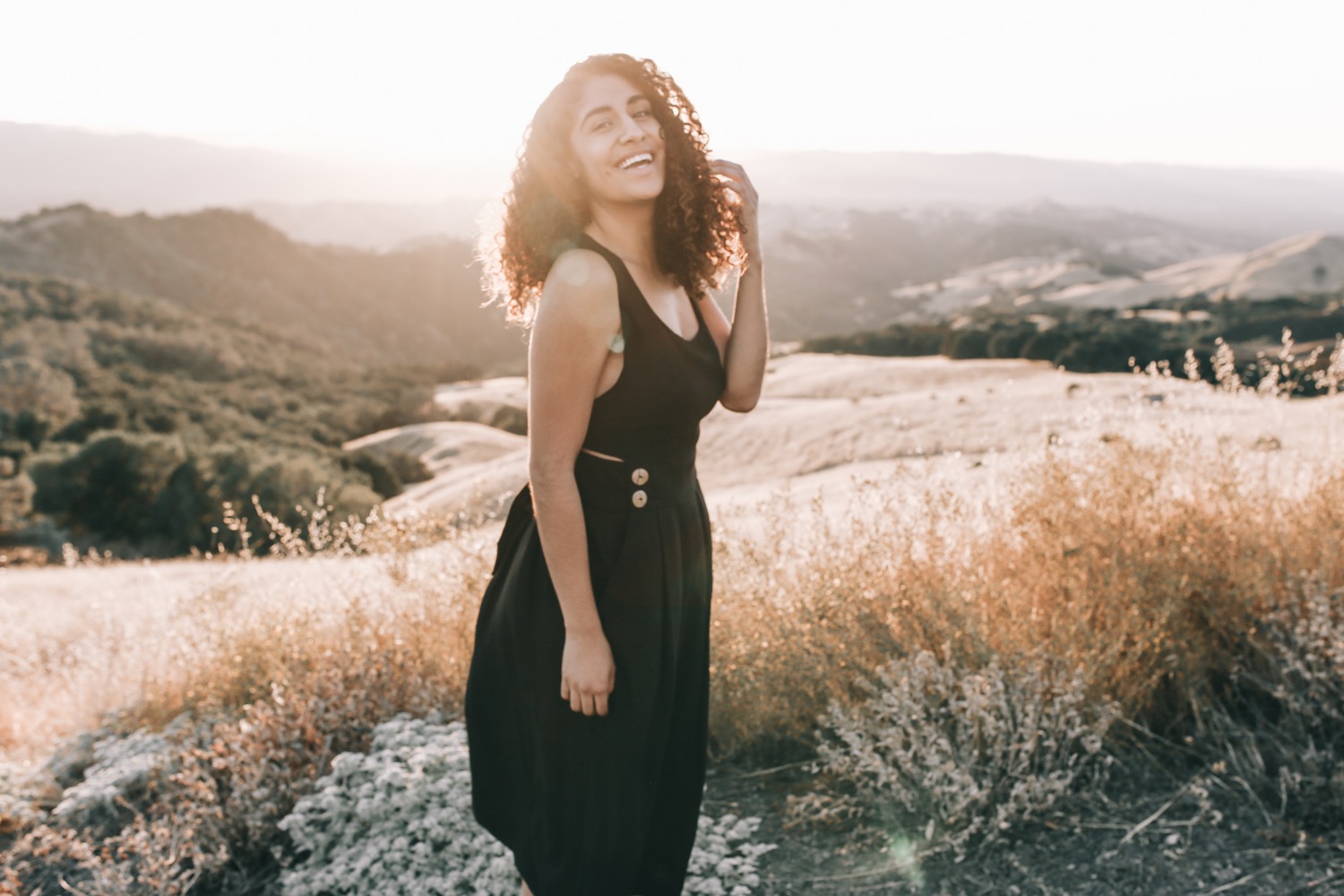Have you ever been on a shoot when a property owner or ranger approaches you and asks what the shoot is for? Or straight up says you can't be shooting there? This happened to me a few weekends ago. I had a big shoot with a local designer for her fall lookbook, and when we decided on a state park as a location, it didn't even cross my mind to try to get a permit (an error on my part). We had 5 models all in nice dresses - not to mention we're driving up in an RV full of clothes that's branded with the store name - so it's not exactly easy to be inconspicuous.
Right before we were going to start shooting, a ranger pulled up to us and got out of his car.
"Are you going to be camping tonight?" he said, motioning to the RV. I breathed a sigh of relief, thinking that's all he was curious about.
The designer clarified that we were just out for a cruise on the mountain. I kept my camera in my bag. His eyes moved to the 5 models, all standing there in casual dresses.
"Is this a photoshoot? What's it for?"
 In a situation like this, there's really only so much you can do. In this case, we tried to minimize what we were doing by portraying the shoot as casually as possible. He basically said that he could technically fine us if we were to proceed with taking photos, but that he was just going to drive off and we could consider it a warning. So he never openly condoned it, but rather turned a blind eye, just because he happened to be nice.
In a situation like this, there's really only so much you can do. In this case, we tried to minimize what we were doing by portraying the shoot as casually as possible. He basically said that he could technically fine us if we were to proceed with taking photos, but that he was just going to drive off and we could consider it a warning. So he never openly condoned it, but rather turned a blind eye, just because he happened to be nice.
The best thing to do would be to learn from my mistake and just get a permit to begin with, but often these are quite expensive. For family/individual portrait photography, they're only about $100 a year for state parks in California, which, I'd say, is definitely worth getting if you're working with families/individuals often. But as soon as you mention the word "commercial," that number skyrockets up to $750/half day or $165/hour in certain parks!
Unfortunately, the reason that state parks and rangers are starting to crack down on this is probably due to the actions of a few select individuals. Many of us do treat state parks with respect, as they should be treated, but some people feel entitled to take over the space in a destructive manner for the sake of their photoshoot.
The line between commercial and portrait work can be tough to differentiate, but the general rule of thumb is that if you have a model who is showcasing a product - whether that's clothes, accessories, cars, or toothbrushes - or just the product itself being posed on a stump or a road, it's considered to be commercial.
Many people believe that because we pay taxes to support the upkeep of our parks, we should be able to use them as we see fit. The state parks believe that if you have any chance of profiting off of them - whether that's now or eventually - without them getting a cut, you're taking advantage of them.
 I'm not here to provide legal counsel on this matter, or to give my opinion on how things should be. I do want to share what I've learned from my experience encountering rangers while out on a shoot without a permit.
I'm not here to provide legal counsel on this matter, or to give my opinion on how things should be. I do want to share what I've learned from my experience encountering rangers while out on a shoot without a permit.
For the times when you simply don't have the budget for a permit, or you realize too late that we need one, there are a few steps you can take to minimize the impact of your encounters with the parks:
1) Slim down your gear. I am thankful that I rely on minimal gear in situations like this: I use one camera body and one main lens and store them in a forest green camera bag that looks like it could just be an everyday bag. I do have a reflector, a changing booth, a few other lenses that I'll pull out occasionally, but I can make do without them 99% of the time. Carrying around huge lenses with battery packs on your camera and setting up lights and reflectors is a definite red flag and is sure to raise questions.
2) Prep your team. Working with a big team can create a lot of commotion. Before we arrive at the location, I prep my team, telling them that we don't want to cause a scene by being too loud or disruptive. Pulling out a big clothing rack, or having heaps of makeup bags on the ground is NOT what a ranger wants to see. That screams commercial. I encourage my team members to work with one look at a time and carry minimal kits for touch-ups. I also ask them to wander around while we shoot, so it's not like we're all obviously staring at a model for 10 minutes. This makes us more discreet. The more you can look like you're just on a hike or a picnic, the less likely you are to stick out.
3) Student project? I'm lucky that my 23-year-old self can still believably pass as a college student. If a ranger asks what the shoot is for (especially if it looks commercial), saying it's a student project is probably the response you'll have the most success with - no matter how old you are. (Many people enroll in art/photography classes when they're older!) I've used this line several times and have never been questioned further. It helps to prep your team on this story as well so that you're all on the same page.
4) Be respectful. Above all, be respectful. This applies to two situations: respecting the environment and respecting authority. This should go without saying, but don't leave trash everywhere or trample a bunch of flowers - be kind to the environment you're working in! And if a ranger does approach you, it's not the time to be self-righteous and argue with them. The more you show that you're willing to work with them, the higher the chance they might be willing to work with you. If they ask you to leave, respect their choice and move on. Choosing to ignore them may result in getting fined or threatened with "police action." It's good to have back-up locations in case this happens.
I'll conclude this by saying that if you get a permit, you can go crazy - in a non-destructive manner, of course. As soon as you have written permission, you can bring as much gear as you want, and you'll sleep a little better the night before the shoot while your brain can dream of golden light and composition rather than excuses to tell the ranger. So, when possible, just bite the bullet and get a permit.
Happy shooting!
Have you experienced something similar while shooting in a state park? Share it in the comments below!